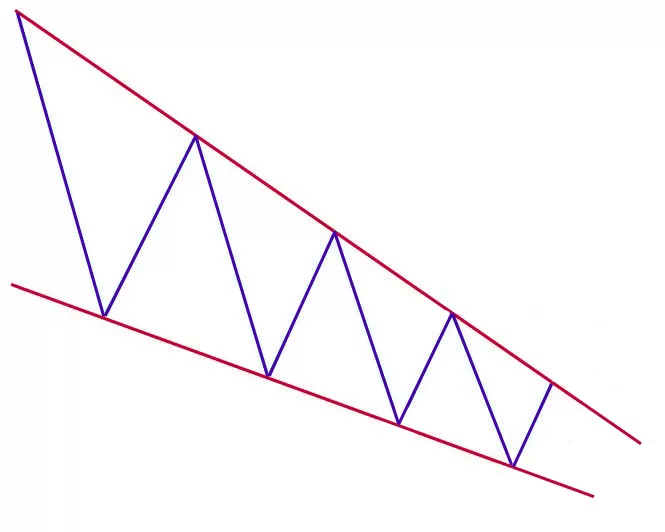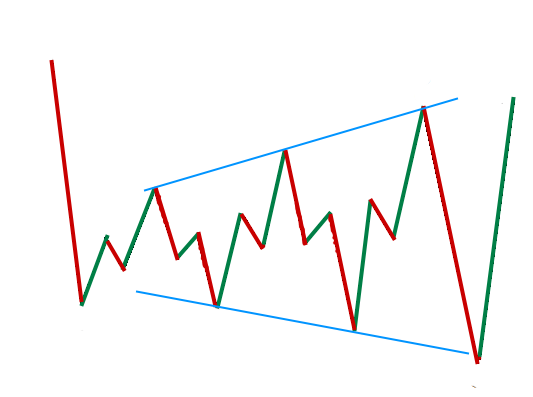Technical analysis is filled with various indicators that can help traders predict market trends and make informed decisions. One such indicator is the Kicking Candlestick Pattern. This pattern of two candles can provide valuable insights into potential trend reversals. In this article, we will explore the different variations of the Kicking pattern, understand their construction, and analyze their significance in predicting bullish or bearish continuations or reversals.
Structure of the Kicking Candlestick Pattern
The Kicking Candlestick Pattern is a two-line pattern that can indicate a potential reversal in the prevailing market trend. It consists of a first candle and a second candle, with each candle having specific characteristics depending on whether it is a bearish or bullish Kicking pattern.
Bearish Kicking Pattern
The following conditions recognize the bearish Kicking pattern:
- The first candle is bullish and has no upper or lower shadows.
- The second candle is bearish, missing both shadows, and opens with a gap down from the first candle.
This pattern suggests a potential reversal from a bullish trend to a bearish one. Traders often interpret this as a signal to sell or short-sell the asset.
Bullish Kicking Pattern
On the other hand, the bullish Kicking pattern is recognized by the following conditions:
- The first candle is bearish and has no upper or lower shadows.
- The second candle is bullish, also missing both shadows and opens with a gap up from the first candle.
This pattern suggests a potential reversal from a bearish trend to a bullish one. Traders often interpret this as a signal to buy or go long on the asset.
It’s important to note that the Kicking pattern is relatively rare, especially in liquid markets. However, it can provide strong indications of trend reversals when it does occur.
Formation of the Kicking Candlestick Pattern
To fully understand the construction and interpretation of the Kicking Candlestick Pattern, let’s dive deeper into the characteristics of each candle and its implications.
First Candle: Red Marubozu (Bearish Kicking) or Green Marubozu (Bullish Kicking)
The first candle of the Kicking pattern is a Marubozu candle, which means it has no upper or lower shadows and represents a strong trend. In the bearish Kicking pattern, the first candle is a Red Marubozu, indicating a bearish trend prior to the pattern. Conversely, in the bullish Kicking pattern, the first candle is a Green Marubozu, indicating a bearish trend prior to the pattern.
Second Candle: Price Gap and Lack of Shadows
The second candle of the Kicking pattern also has specific characteristics that provide valuable insights. It opens with a gap in relation to the first candle, either up or down, depending on the pattern. This gap signifies a sudden shift in market sentiment. The second candle has no upper or lower shadows like the first candle.
The absence of shadows in both candles further strengthens the significance of the pattern. It indicates that the price movement during the period covered by the candles is exceptionally strong and decisive.
Reversal or Continuation
The interpretation of the Kicking pattern depends on the prevailing trend. If the pattern appears during a bullish trend, it suggests a potential continuation. Conversely, if the pattern appears during a bearish trend, it signals a potential reversal. Traders often await confirmation from subsequent candlesticks to validate the pattern and make trading decisions accordingly.
The Rarity and Significance of the Kicking Candlestick Pattern
The Kicking Candlestick Pattern is considered an exotic pattern due to its rarity, especially in liquid markets. Its occurrence is relatively low compared to other candlestick patterns. However, when it does occur, traders pay close attention to it as it can provide valuable insights into potential trend reversals.
Kicking Up Pattern: Bullish Continuation/Reversal
The Kicking Up pattern, also known as the Bullish Kicking, is a variation of the Kicking pattern that suggests a potential bullish continuation or reversal. It consists of a Red Marubozu as the first candle and a Green Marubozu as the second candle. The opening of the second candle is higher than the previous opening, forming a price gap.
Traders interpret the appearance of the Green Marubozu as a sign of buying demand, indicating a potential price rise. However, it’s important to note that the Kicking Up pattern is exceptionally rare, making it more of a curiosity than a widely traded pattern.
Kicking Down Pattern: Bearish Continuation/Reversal
Conversely, the Kicking Down pattern, also known as the Bearish Kicking, is a variation of the Kicking pattern that suggests a potential bearish continuation or reversal. It consists of a Green Marubozu as the first candle and a Red Marubozu as the second candle. The opening of the second candle is lower than the previous opening, forming a price gap.
The appearance of the Red Marubozu in the second candle indicates a potential increase in selling pressure, suggesting a potential decline in prices. Similar to the Kicking Up pattern, the Kicking Down pattern is exceptionally rare in liquid markets.
Conclusion
The Kicking Candlestick Pattern is a powerful indicator that can provide valuable insights into potential trend reversals. Its rarity in liquid markets makes it an intriguing pattern to observe. Traders interpret the pattern based on the prevailing trend and subsequent candlestick movements. Whether it suggests a bullish continuation or a bearish reversal, the Kicking pattern can equip traders with the knowledge to make informed trading decisions.
While the Kicking pattern may not be as commonly traded as other candlestick patterns, its significance lies in its ability to provide unique insights into market sentiment and potential trend shifts. Expanding your knowledge of candlestick patterns can enhance your technical analysis skills and improve your trading strategies.





